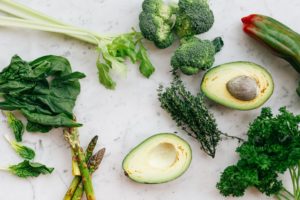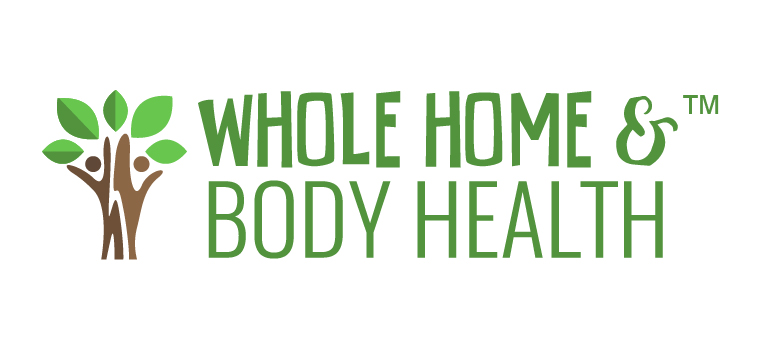Can What You Eat Actually Improve Your Mood?
The simple answer? A resounding YES! Of course, it can!
The old saying “You are what you eat” isn’t just a saying, it’s a simple fact. The nutrients you put into your body are literally what make up your tissues and cells. And if your tissues and cells don’t have the nutrients it needs to function, then your brain won’t function either.
It’s important to understand that here in the West, we like to compartmentalize the body. For some reason, we think that all parts of the body are separate. We have medical specialists like cardiologists that focus their practice on all things related to the heart and cardiovascular system, we have neurologists that focus on the brain, endocrinologists that focus on hormones, dermatologists that focus on the skin, and so on. While these medical specialties are very important, this system neglects the inherent synergy of the body. When the heart is diseased for example, it’s not only a problem of the heart, it’s reflective of a system-wide issue. The human body is one thing, a unit, not various independent sections. What happens in one part of the body, affects every other part of the body.

This simple fact is somehow missed in our Western medical model. It is interesting to note that in other medical systems (Ayurveda, Traditional Chinese Medicine, etc.) the focus is on the body as a unit. An appropriate treatment would never involve suppressing symptoms of the outwardly affected body part. Instead, it would focus on why an imbalance arose in the body, and focus on rebalancing the entire system. Western medicine would benefit greatly from incorporating a more holistic approach like these traditional medical systems.
Now that we understand that the body is a system and that everything we do affects every part of the body, let’s talk specifically about the brain.
Let’s start with neurotransmitters. Neurotransmitters are chemical messengers in the brain. They transmit signals from nerve cells to other cells of the body. Common neurotransmitters include serotonin, dopamine, GABA, and epinephrine. Many of us have heard of these because they’re well-known molecules that affect our mood. Some of them cause us to be calm and relaxed like serotonin, and others cause us to be excited and alert like epinephrine. When the inhibitory and excitatory neurotransmitters are in balance, then our mood is more likely to feel stable. But imagine what happens when they become out of balance? This is when you may experience feelings like anxiety and depression.
Now here’s the thing, neurotransmitters are made from amino acids. Amino acids make up proteins. Where do we get these amino acids from? You guessed it, they come from our food! If you don’t have adequate amino acids in your diet, then you can’t make adequate neurotransmitters.
Additionally, neurotransmitters need other nutrients called co-factors. These cofactors include vitamins, minerals, and phytonutrients. Where do we get vitamins, minerals, and phytonutrients? That’s right, we get them from our food!
Let’s use serotonin as an example. You may know serotonin as a relaxing, mood-stabilizing chemical. Your body makes serotonin from the amino acid tryptophan. It also needs certain cofactors like vitamin B6, vitamin C, folic acid, and magnesium. So if you’re not getting enough tryptophan in your diet, nor enough vitamin B6, vitamin C, folic acid, and magnesium, then you won’t be able to adequately make serotonin. If you can make this calming neurotransmitter, then you may have feelings of anxiousness and mood instability.
Research has also shown us that your gut microbiota can actually regulate the production, function, and transportation, of neurotransmitters. It’s important to know that approximately 80 percent of the human body’s total serotonin is located in the gut, more specifically in the enterochromaffin cells. So if you don’t have a healthy gut microbiota, you also will have difficulty making adequate serotonin.
 It’s no wonder that dysbiosis of the gut microbiota is associated with IBD (Inflammatory Bowel Disease), IBS (Irritable bowel syndrome), anxiety and depression.
It’s no wonder that dysbiosis of the gut microbiota is associated with IBD (Inflammatory Bowel Disease), IBS (Irritable bowel syndrome), anxiety and depression.
In my practice, I have seen a huge increase in self-reported anxiety and depression in the last 10 years, and I hear the same thing from my colleagues. I don’t think it’s a coincidence that obesity levels and metabolic conditions are also at an all-time high.
Given this information, there are two important factors to consider:
1. People around the world are eating a nutrient-void diet, more so than ever before in history. A nutrient-void diet consists of highly processed junk foods: cookies, chips, sodas, fast food, etc.
When you eat highly processed foods, you do not get the building blocks needed for your body to function. As we saw above, your body is literally made of amino acids, minerals, phytonutrients, and vitamins. Just like your car can’t run on trash, neither can your body. It must have the nutrients it needs to function. So if you’re feeding your body nothing but junk food, of course you’re going to feel horrible! You don’t have the basic building blocks to produce the co-factors and neurotransmitters your body needs. It’s that simple. Yet for some reason, we think we can just feed our bodies junk and we’ll somehow be ok. Hopefully you’re beginning to understand that that’s not the way it works. Nutrient density is key.
We have been taught for so long to think of food in calories or macronutrients, but that’s now what’s important. Instead, we should be thinking in terms of nutrient density – does this food contain minerals, vitamins, amino acids, fiber, phytonutrients? Does it give my body the nutrients it needs to make neurotransmitters?
2. We also need to talk about blood sugar. This is very important. There is plenty of research demonstrating that recurrent hypoglycemia (low blood sugar) is associated with mood disorders. Does the standard western diet cause blood sugar swings? Absolutely. The highly processed foods many of us consume are high in sugars and carbohydrates and thus metabolize very quickly. This large dose of sugar causes an increase in insulin, cortisol, and adrenaline. Many of us consume high amounts of processed foods at every meal, and that can lead to chronically high levels of these hormones. We all know how cortisol and adrenaline make us feel – wired and anxious! When we feel wired and anxious, many of us reach for even more addictive foods to relieve the discomfort. This keeps us in a vicious cycle where we make poor food choices and continue to feel awful.
So how do we choose the right foods to nourish our bodies and our brains? It starts with choosing nutrient-dense foods and creating meals that help balance blood sugar.

As a general rule, if the food comes in a package, you should avoid it. If it grows in the ground, on a tree, on a bush, or you can kill it (and it’s not poisonous to humans) then you can eat it.
Now you also need to choose foods that will balance your blood sugar. You want slowly digesting foods that are high in protein, fat, and fiber. Start with a palm-sized portion of protein at each meal, a few tablespoons of naturally occurring fats, and at least 2-3 servings of vegetables. Then you need to figure out how much carbohydrate works for you. It may be ¼ cup, a ½ cup, or even more depending on your lifestyle. This is something unique to each person and you’ll need to experiment to see what works best for you.
Good options for carbohydrates include things like starchy vegetables and tubers: sweet potatoes, carrots, beets, plantains, squashes like butternut squash or pumpkin, and for some people properly prepared beans and legumes. This is a general guideline. Every person is unique. One person’s perfect food is another person’s poison. Working with a qualified practitioner will help you identify the best foods for your body.
I want to take a moment to stress the importance of consuming adequate amounts of healthy fats. The brain is approximately 60% fat and it needs a healthy amount of fatty acids from food to function optimally. We have been told for sooo long that fat makes us fat, but that’s not correct. Our body needs fat for brain health, as well as for hormone production, cardiovascular health, the microbiome, skin health, etc. I recommend fats like grass-fed pasture-raised meats and eggs, avocados, coconuts, olives, and olive oils, full-fat grass-fed dairy if you can tolerate dairy and other whole food sources.
The bottom line is that we should always be choosing fresh, organic, whole foods and eliminate junk foods entirely from our diet. End of Story.
Remember, you are what you eat, literally. So what do you want to be? Cheap, mass-produced, highly processed, fast food? Or nutrient-dense, pasture-based, organic foods as nature intended? If you want to feel your best, have stable moods, and have great mental clarity, then choose the foods that nature provides, not foods you can find in a laboratory.
Want help choosing the optimal diet for you? Give us a call. We’re always happy to help!

Cathy Cooke, BCHN, BBEC Holistic Nutritionist and Building Biologist is the founder of Whole Home and Body Health which provides EMF Assessments, Mold Testing, and Nutrition and Health Consulting located in Boise, Idaho. Cathy is available for consulting via skype and phone, and is also willing to travel as needed for home assessments. Schedule an appointment today!


